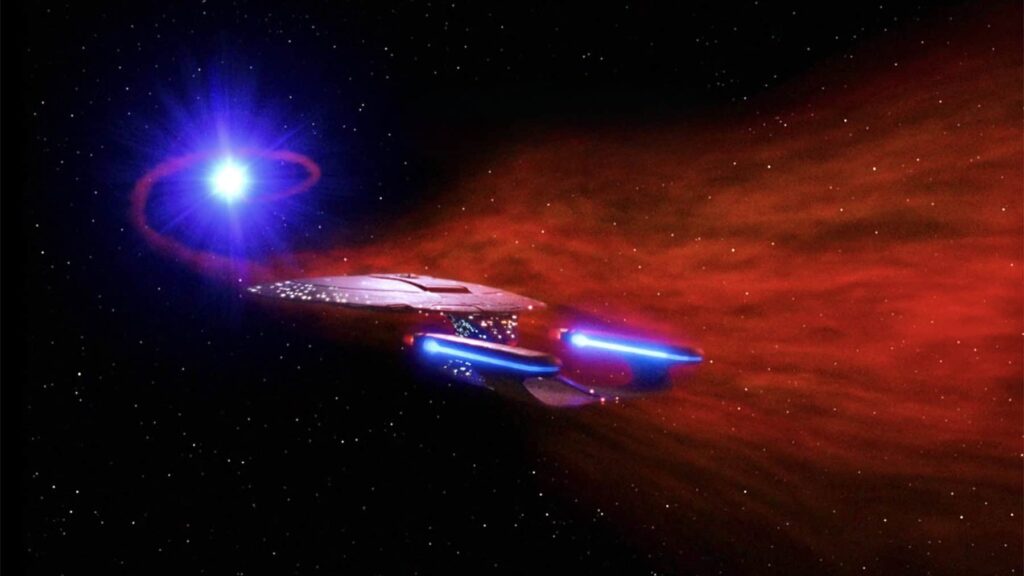By Chris Snellgrove
| Published
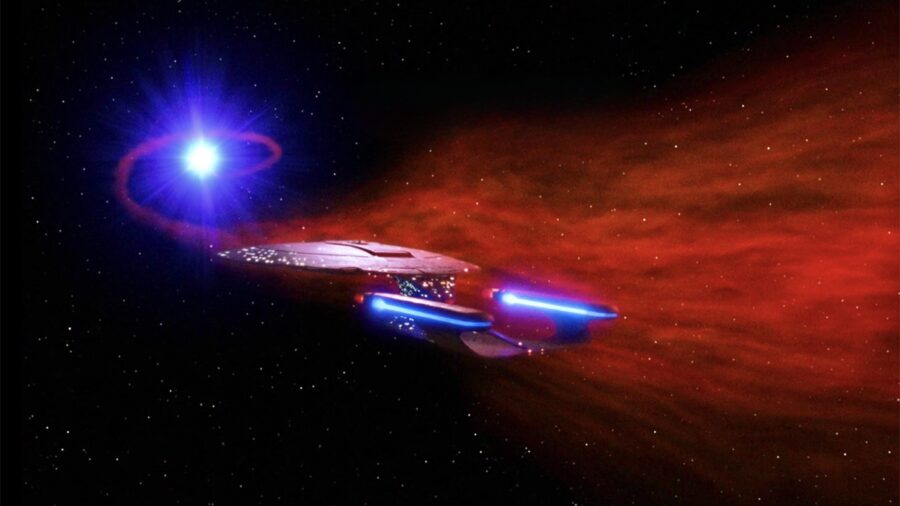
As a huge Star Trek fan, I’ve always been fond of “Evolution,” the third-season premiere episode of The Next Generation. The third season was basically when TNG finally hit its stride, complete with new uniforms and a new, character-centric approach to storytelling that transformed the franchise for the better. Additionally, “Evolution” has everything that makes Trek’s golden age so special, which is why I was shocked to discover that the creators behind this killer episode mostly thought it was mediocre.
The Plot Of “Evolution”
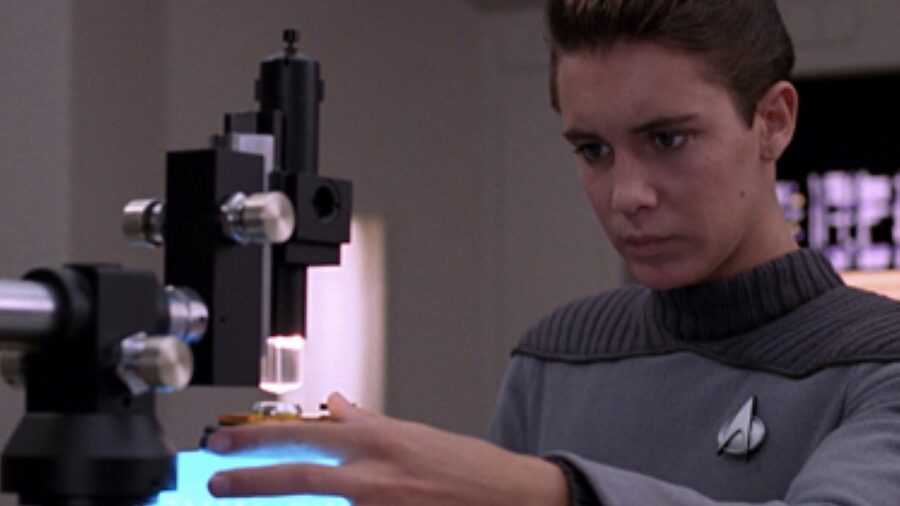
If you’re a Star Trek fan who needs a quick “Evolution” primer, here you go: this is the episode where the Enterprise escorts an eccentric scientist hoping to observe and record data from a cosmic phenomenon that happens only once every 196 years. Meanwhile, Beverly Crusher is back onboard and trying to bond with her son Wesley, but he’s too focused on his studies. So focused, in fact, that he accidentally lets some nanites out and they infect the ship’s core. As the critters evolve, they threaten this time-sensitive experiment, and in fine TNG fashion, diplomacy with this new lifeform ends up saving the day.
Speaking for myself, I thought this was a great Star Trek episode. It’s not the finest one in the franchise or anything, but “Evolution” is arguably the strongest season premiere, one that looks even stronger in comparison with “Shades of Grey,” the clip show crapfest that ended Season 2. That’s why I was so surprised that the creators behind the episode found it mediocre, starting with showrunner and general TNG savior Michael Piller.
A Mediocre Season Start
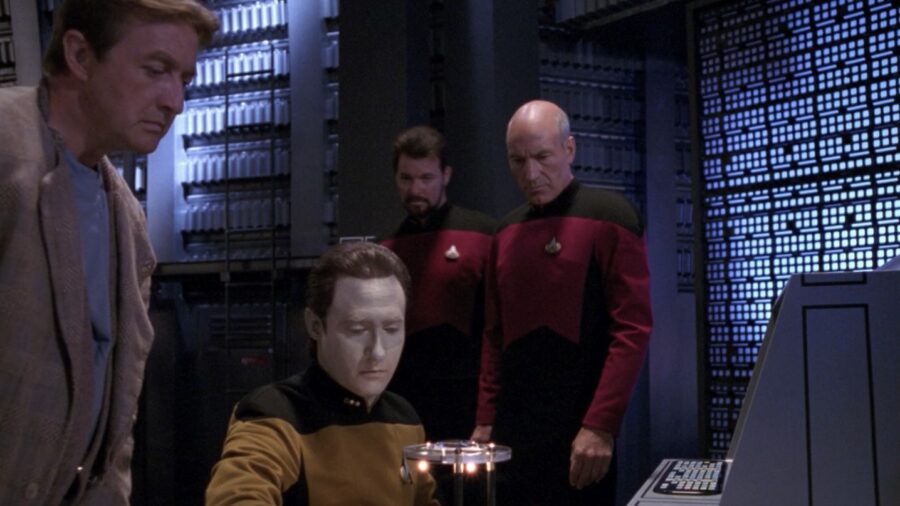
Despite the Star Trek showrunner actually writing “Evolution,” Piller still concluded that “it was a B-episode.” Declaring that it “worked out okay,” he still lamented that “I didn’t dislike it.” While emphasizing that he was still “proud of the episode,” Piller summed up his thoughts by saying that the episode “didn’t quite come off.”
Veteran Star Trek director Winrich Kolbe was in charge of bringing this episode to life, and he shares Piller’s assessment of the episode’s mediocrity. He first praised the plot about a scientist who “suddenly found out that there are ramifications he hadn’t thought of” and said that he “liked” that “there was a certain amount of immaturity, cockiness, or whatever.” However, he felt “everyone considered it a child’s show, even the writers,” which led to a “very serious issue” (these nanites could have easily destroyed the Enterprise and threatened the Federation) that “wasn’t dealt with properly” onscreen.
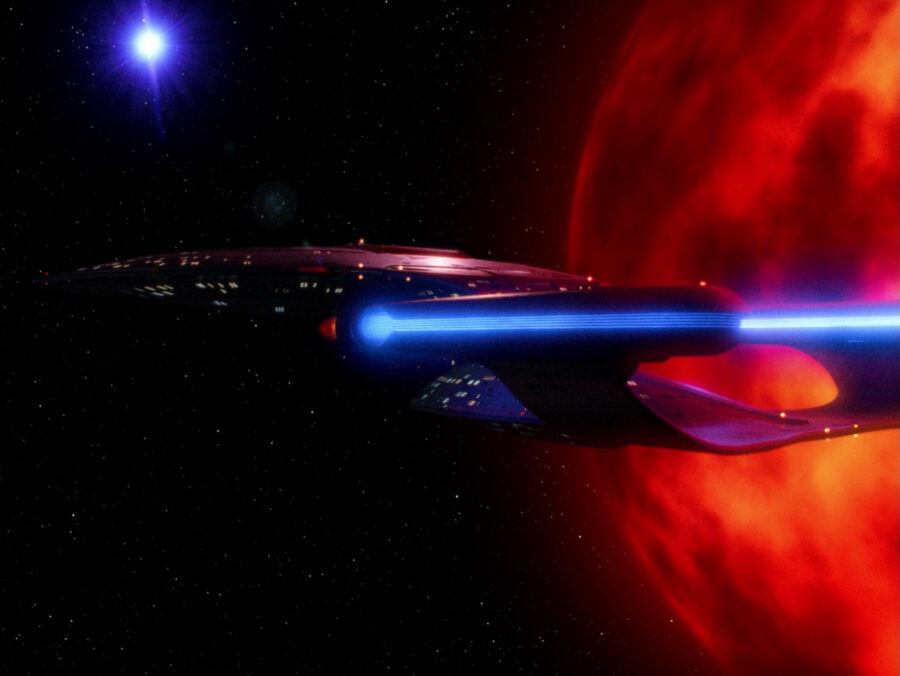
Kolbe is one of the most reliable Star Trek directors, and Piller more or less saved The Next Generation from the death spiral of its first two seasons, but I just can’t get behind their criticisms of “Evolution.” It gave us a perfect Original Series setup with the quirky scientist and quirkier space phenomenon, but it added a proper Next Generation twist by having Picard save the day using diplomacy and not violence. We even saw the birth of a new life form, and if “seeking out new life” isn’t Trek enough, I frankly don’t know what is.
Star Trek: The Next Generation had better episodes than “Evolution,” but arguably no better season opener. It’s a standalone story that is eminently rewatchable, even if its writer and director consider it something of a B-episode. And considering how remarkably uneven the NuTrek era of the franchise has been, this “B” episode now seems nothing short of brilliant.

